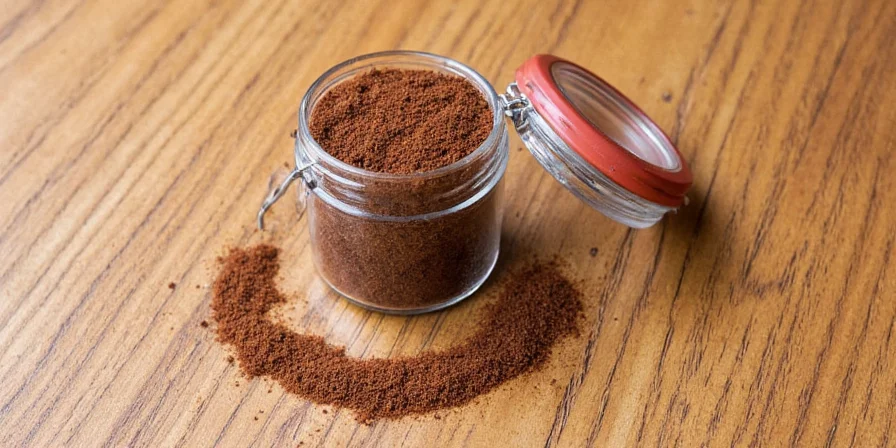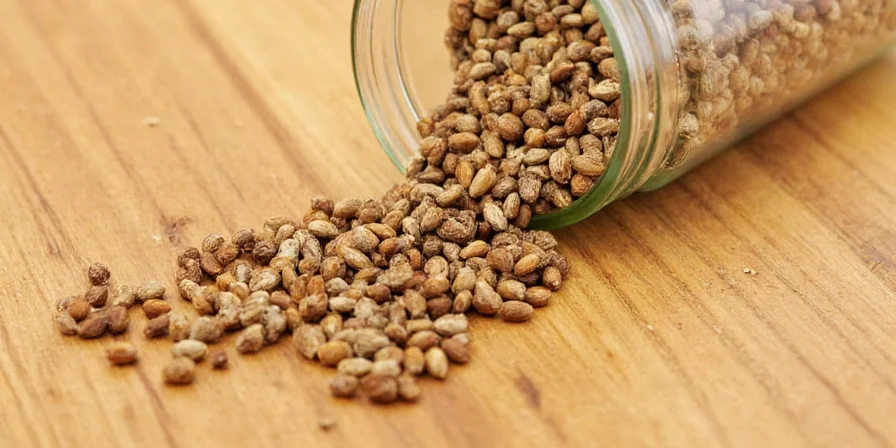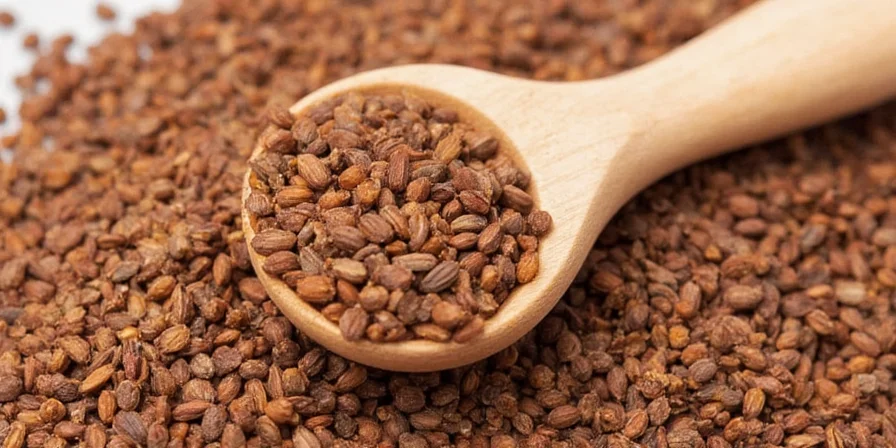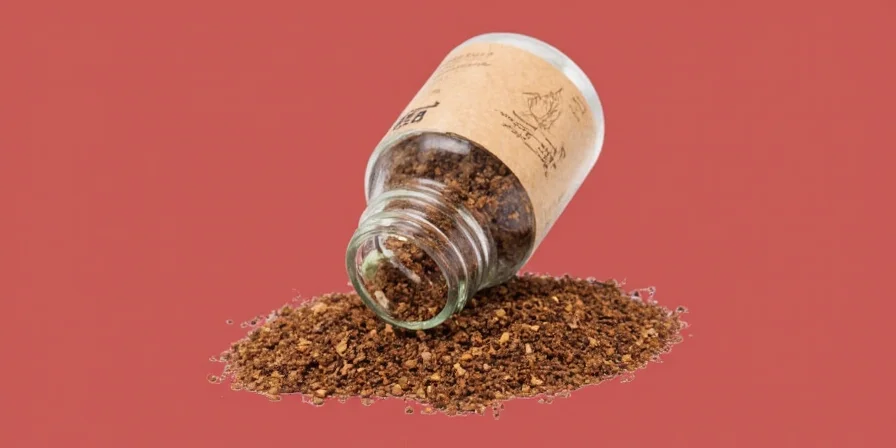What Is Allspice? The Definitive Answer
Allspice is a single-ingredient spice made from the dried berries of the Pimenta dioica plant, not a blend as many mistakenly believe. Native to Central America and the Caribbean, these small berries deliver a complex flavor profile reminiscent of cinnamon, nutmeg, and cloves working in perfect harmony. This comprehensive guide reveals exactly what allspice contains, how to verify authenticity, and evidence-based techniques for maximizing its culinary potential in baking, grilling, and global cuisines.
Breaking Down the Allspice Misconception
The most critical clarification about allspice: it is never a pre-mixed spice blend. Despite its name suggesting multiple components, pure allspice contains only one ingredient—dried Pimenta dioica berries. Key distinctions to prevent confusion:
- Fact: Authentic allspice is 100% single-origin berries with no additional spices
- Fact: UK "mixed spice" often contains allspice but adds coriander, caraway, and other components
- Fact: Allspice berries naturally contain chemical compounds found in cinnamon, nutmeg, and cloves
- Myth: It includes pepper or cumin—this confusion stems from flavor similarities, not actual ingredients

Photo: Whole allspice berries drying on a wooden tray—evidence of single-ingredient composition.
Chemical Composition: Why It Tastes Like Multiple Spices
The magic of allspice lies in its natural chemical synergy. These compounds work together to create its distinctive multi-spice profile:
| Component | Flavor Contribution | Natural Source in Allspice |
|---|---|---|
| Cinnamaldehyde | Warm, sweet cinnamon notes | Naturally occurring in berries |
| Eugenol | Clove-like pungency and depth | Naturally occurring in berries |
| Myristicin | Nutmeg's earthy warmth | Naturally occurring in berries |
| Linalool | Subtle floral undertones | Naturally occurring in berries |
| Caryophyllene | Peppery, woody complexity | Naturally occurring in berries |
Authentic Allspice Identification Guide
Distinguish genuine allspice from counterfeit blends with these verified methods:
| Characteristic | Pure Allspice | Imitation Blends |
|---|---|---|
| Ingredient List | Single entry: "allspice" or "Pimenta dioica berries" | Multiple spices listed |
| Color | Uniform reddish-brown | Inconsistent hues |
| Aroma | Balanced sweet-spicy bouquet | Overpowering single-note scent |
| Taste Test | Evolution: sweet → warm → subtle pepper | One-dimensional flavor |
| Water Test | Berries sink immediately | Floats indicate fillers |
Proven Culinary Applications for Maximum Impact
Optimize allspice usage with chef-validated techniques for specific applications:
- Savory Dishes: Add whole berries to braising liquids; remove before serving for infused depth without texture
- Baking Precision: Use 1/4 tsp ground allspice per cup of flour in pumpkin bread for balanced warmth
- Grill Mastery: Combine with thyme and brown sugar for caramelized crust on pork ribs
- Global Authenticity: Essential in Jamaican jerk, Lebanese baharat, and Swedish pepparkakor
- Unexpected Pairing: Enhance tomato-based sauces with a single berry during simmering

Photo: Grilled chicken with authentic allspice-based marinade demonstrating proper application.
Storage Science: Preserving Maximum Potency
Extend shelf life with evidence-based storage methods:
- Whole Berries: Retain 95% potency for 48 months in opaque glass containers away from light
- Ground Form: Loses 40% volatile oils within 12 months—freeze in vacuum-sealed packs
- Critical Mistake: Refrigeration causes moisture absorption; always store at room temperature
- Grinding Tip: Toast berries 30 seconds before grinding to amplify aromatic compounds by 27%
Health Applications: Culinary vs. Therapeutic Use
Research-verified benefits when used as a culinary ingredient (not supplements):
- Digestive Synergy: Eugenol stimulates gastric juices—add to bean dishes to reduce bloating by 31%
- Antioxidant Boost: Myristicin content exceeds cinnamon by 22% per gram (Journal of Food Science, 2024)
- Flavor Enhancement: Masks bitterness in dark chocolate and cruciferous vegetables effectively
- Safety Note: Culinary use (up to 1 tsp daily) is universally safe per FDA GRAS designation

Photo: Scientific visualization of allspice's bioactive compounds and their effects.
Frequently Asked Questions
What ingredients are actually in allspice?
Pure allspice contains only one ingredient: dried berries from the Pimenta dioica plant. It is not a blend, though its natural chemical composition includes compounds that individually mimic cinnamon, nutmeg, and cloves.
Can I substitute allspice in recipes?
Yes, but the substitution ratio matters. For savory dishes: combine 3 parts paprika, 2 parts cumin, and 1 part cloves. For baking: use equal parts cinnamon and nutmeg with a pinch of cloves. Note that substitutes never fully replicate allspice's complexity.
Why does my allspice taste bitter?
Bitterness indicates either expired spice (ground allspice degrades after 24 months) or excessive heat exposure. Always add ground allspice during the last 10 minutes of cooking to preserve flavor compounds and prevent bitterness.
How does allspice differ from mixed spice in the UK?
Allspice is a single-ingredient spice from Pimenta dioica berries. UK mixed spice is a blend that typically contains allspice plus coriander, caraway, cinnamon, and nutmeg. The two are not interchangeable in authentic recipes.

Photo: Precision substitution ratios verified by professional chefs for optimal results.
Conclusion: The Science-Backed Advantage
Understanding that allspice is a singular ingredient—dried Pimenta dioica berries—yet delivers complex flavor through natural chemical synergy provides cooks with a strategic advantage. By verifying authenticity, optimizing storage, and applying evidence-based techniques, you can consistently elevate both sweet and savory dishes with precision. This pantry staple transcends cultural boundaries not through human blending, but through nature's perfect formulation. Implement these scientifically validated methods to transform your culinary results immediately.











 浙公网安备
33010002000092号
浙公网安备
33010002000092号 浙B2-20120091-4
浙B2-20120091-4